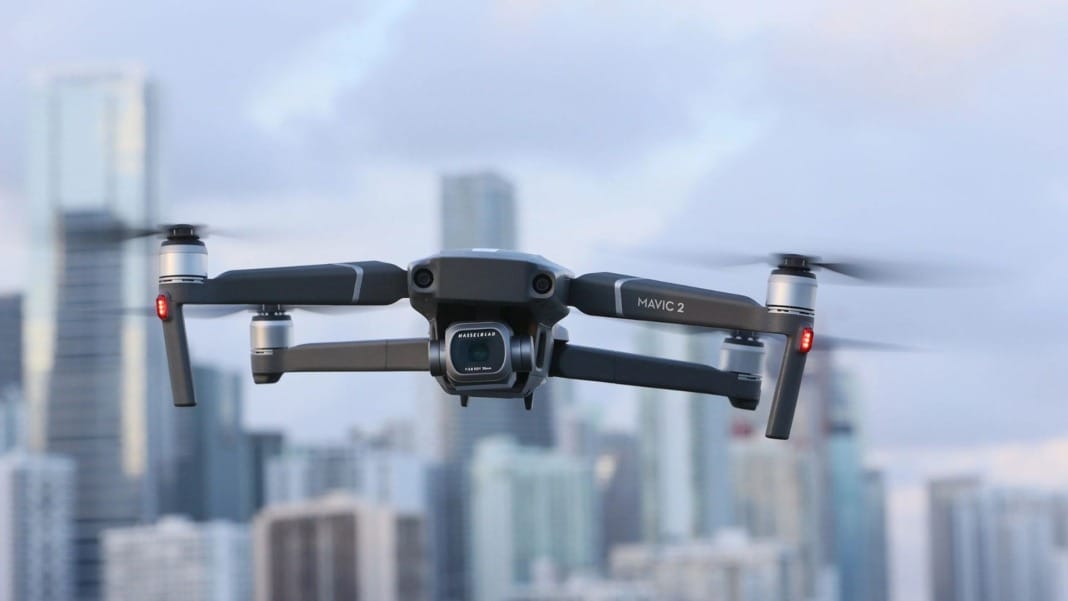DJI, the world’s largest drone manufacturer, has taken legal action against the US Department of Defense (DoD) to remove itself from a list of “Chinese Military Companies.” The company argues that it has no connection to the Chinese military and that this designation has caused significant damage to its business and reputation.
In a lawsuit filed on Friday, DJI claims that being added to this list in 2022 has severely impacted its operations. According to the company, the label has led to the loss of several business deals, caused stigmatisation as a national security threat, and prevented it from working with multiple US government agencies. DJI employees have also reportedly faced public harassment and insults due to the designation.
DJI disputes the reasoning behind its designation
The lawsuit accuses the DoD of refusing to explain its decision to classify DJI as a “Chinese Military Company” until the company threatened legal action in September 2023. When the DoD finally gave its reasons, DJI claimed they were filled with errors.
The Department of Defense has yet to respond to DJI’s lawsuit or provide further public comment.
DJI’s legal challenge is part of a larger effort to distance itself from accusations that the Chinese government controls it. In its complaint, DJI argues that the Chinese military does not own it and denies having any role in the surveillance of Uyghurs in Xinjiang, a claim that US officials have levelled. The company insists it merely sells drones used by various organisations, including first responders in the US, for purposes it cannot control once the drones are sold.
History of scrutiny from US government agencies
DJI has been under increasing scrutiny from US government agencies for several years. In 2017, the US Army stopped using DJI drones due to concerns about possible ties to the Chinese government. The following year, the US Department of Commerce placed DJI on its Entity List, preventing US companies from exporting technology to DJI, citing its alleged involvement in human rights abuses in China.
In 2021, the US Treasury added DJI to its Non-SDN Chinese Military Industrial Complex Companies list, accusing it of supplying drones to the Chinese government to help with surveillance of Uyghurs, further complicating its standing in the US.
Due to these actions, several US government departments have been restricted from purchasing new DJI drones. Just recently, DJI reported that US customs blocked some of its products under the Uyghur Forced Labor Prevention Act, which aims to prevent goods produced with forced labour from entering the country.
DJI’s response to the accusations
DJI has consistently denied the accusations of involvement in human rights abuses or Chinese government control. In its defence, the company acknowledges that two Chinese state-owned investment funds held minor stakes in the company but maintains that their influence is negligible. According to DJI, the Shanghai Free Trade Zone Equity Fund owns less than 1% of the company’s shares, while the Chengtong Fund ended its investment in June 2023.
DJI also asserts that the company is primarily controlled by four individuals, including its founder, Frank Wang, who, along with early employees, holds 87% of the company’s shares.
Despite the ongoing scrutiny, there has yet to be a complete ban on importing or selling DJI drones in the US. However, Congress is considering banning new DJI products, citing national security risks. This proposal was initially included in the National Defense Authorization Act passed by the House of Representatives but was not part of the Senate’s version. There is still a possibility that the ban could be added before the final version of the bill is passed.
In the meantime, DJI drones remain available for purchase in the US, and existing owners are free to continue using their drones. Even if the proposed ban goes into effect, it will unlikely impact current owners.





